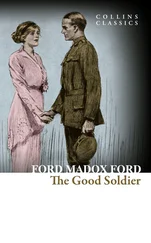“I trust you,” Quinn said. “What’s my choice?”
“But you should trust me as if you had a choice,” Bernhardt said. “You have this against me now.”
“I don’t need anything against you.” Quinn stood forward into the dim light. “That doesn’t mean shit to me.”
“It is an intimacy,” Bernhardt said proudly. “As if we were friends.”
“Any way you want it,” Quinn said, and turned to leave.
Bernhardt smiled at him. “I invite you not to worry now,” he said.
“That’d be nice,” Quinn said. “But I don’t think it’s going to work out like that.”
HE CAUGHT THE REFORMA BUS back up the hill. The bus should have been empty in midafternoon, but it was crowded with poor women and private-school girls in blue kilts riding home to the wealthy neighborhoods, and beyond into the slum barrios above San Andrés Huayapán. A soldier rode in the front step well, but when the bus departed the Centro, he fell asleep against his rifle and everyone became quiet. The schoolgirls sat stiffly facing forward with their books on their bare knees, not looking out.
The shooting in Colonia La Paz had stopped, and the streets felt sealed off. The tortilleriás, the little cubed single-door buildings with names like Mimi and Fifi, were all closed and the wooden doors bolted. A mist had burned off the hills and been borne up, leaving the south end of the valley in a Levantine light that turned the mountains gaudy, green and yellow and black as far as you could see downrange. It was like a National Geopraphic , a stricken landscape that appealed to you the moment you realized you’d never be there. Only, he thought, he was there now, and it made him feel on the edge of something dangerous, as though a sense of lucklessness swam in the air around him.
His mother had told him once after his father had died that the worst of the thirties in Michigan had been to see time making people luckless, people who had never thought of themselves that way, but who had had to begin thinking it because of money, becoming, as she said, a class apart and unreachable. When they had moved off the farm to Traverse City, across from them had been a big yellow house owned by some Jews from Grand Rapids, but in the late forties when his father was working for Deere, it had turned over and become a rooming house with a sign in front that said, simply, DIEL 33377. He couldn’t forget the number now or the way someone had spelled dial wrong. After a while, the people in the neighborhood began to refer to it only as the Dial House and believed, with his mother, that the people who lived there were luckless, as though it was still the thirties and the people were pariahs. Cabs parked there long hours and sometimes overnight while their drivers were inside. Transients moved in and out of the upstairs in cherry time. New children turned up playing in the curb gutters summers, looking as if they had lived there all their lives. And his mother, with the other people in the neighborhood, disliked them, the tall knobby-faced men with long slick hair, and the children, dark and barefooted, and the tiny, silent Mexican-looking women you only saw in doorways. His mother pulled him inside when she thought he played with them or showed a tolerance for them, which he did. Some of them, he thought, were musicians, Southerners or men from Indiana, who played the local radio shows, and the women and children were their families. Though now, staring at the empty streets as the bus heaved across the American Highway and up into the better, upper-class neighborhoods below the bungalow, to wherever the rich schoolgirls lived behind walls, a long way from Traverse City, he believed they were just country people with nothing to live on, gone from wherever they had lived, ready to go anyplace to improve their luck. Maybe they would’ve done something illegal or violent, which is what his mother had thought and warned, but he doubted if there was ever any chance. His mother called them “common,” which was a serious epithet in Michigan, a notch above trash. And she said the word as if it had a bad smell on it, and didn’t like saying it as much as she didn’t like the people she meant it to describe. She thought, he knew, that his father’s family, who were from Niles, had an impulse that carried them (and him too) toward the common, and that their tolerance for it was a weak board in the family character, weak and corruptible. And it terrified her the way moving off the farm had terrified her, the way the long grey expanse of the lake terrified her, the way the hand terrified her for what it meant. She saw it in his father and in him, and thought that she herself was totally incorruptible, and that she should encourage at least obstinancy in them both, which would do the work character and incorruptibility would’ve done if they had existed in them. It was why, Quinn thought, his father had been glad to lose his hand and quit farming and wanting to farm, and why his mother had waked up screaming. She didn’t know when you’d gone too far with something and when obstinance and self-denying became a bigger threat than whatever loss it kept away in the first place. And his father, finally, had had to learn that in a hard way.
The point was, he knew now, after all those months alone in the trailer and in the Scout and out in the woods in the tent, that everybody lives in some relation to the luckless, whether they call it that or call it something else, or whether they manage to live near it or far away. And what mattered most was that you knew the relation moment to moment, like the one he felt now, the particular danger, so that your life turned out to be a matter of what you did to make that bearable, since you couldn’t get so far away from it as to make it not exist. Though when you tried to protect yourself completely and never suffer a loss or a threat, you ended up with nothing. Or worse, you ended up being absorbed right into nothing, into the very luckless thing you were most afraid of.
He walked the last shaded blocks to the bungalow. Things were quiet and protected in the colonia, a universe apart from down the hill. Two of the schoolgirls got off and walked hurriedly the other way, talking in hushed voices. The Dodge was parked below the gate where he’d left it. He remembered the lavaliere under the seat, and decided it would go better when they were gone tomorrow. He wondered exactly how long it took news to get as far away as Minnesota. He thought it couldn’t take long.
Rae was sitting in the living room beside the blank television. The light in the room was liquid and green. The floor had been scrubbed and a white film left on. He was thinking about the money. “Did the moza come?” he said, and walked to the bathroom. Grey water stood in a puddle at the base of the shower. He got on his knees and ran his finger along the groove. Water didn’t matter, but the tiles could get stepped on.
Rae stood barefooted at the door watching him. She had on his plaid bathrobe. She looked woozy. “Do you think she’d steal it?” Rae said.
“Only if she found it,” he said. He moved to the tiles behind the toilet.
“Do you fuck her too?” Rae said. “She’s pretty. We exchanged nasties while she cleaned. She said you were very amable and very generoso with her.”
“That’s right.” His knees were wet and the floor smelled piny where the girl had scrubbed with solvent and sprayed with O.K.O. She was a Mixtec girl with ulcers who was learning to read in the technological college. She had asked help with her letters, and he had demonstrated an upper-case Q .
He dug the paste with his fingers and lifted the tiles off the pistol. Water had seeped and beaded on the bluing. Grouting was already crumbled into the cylinder.
Читать дальше







![Theresa Cheung - The Dream Dictionary from A to Z [Revised edition] - The Ultimate A–Z to Interpret the Secrets of Your Dreams](/books/692092/theresa-cheung-the-dream-dictionary-from-a-to-z-r-thumb.webp)




